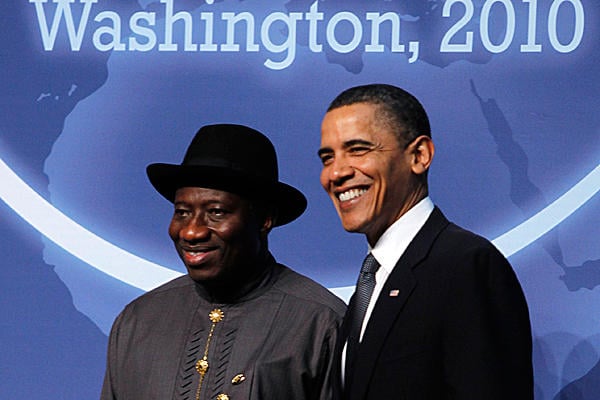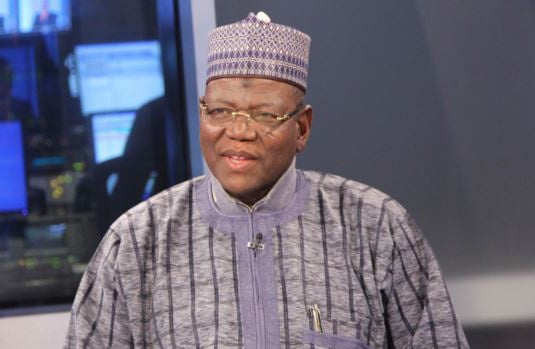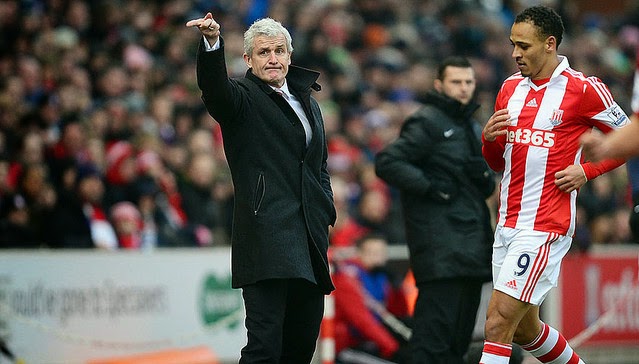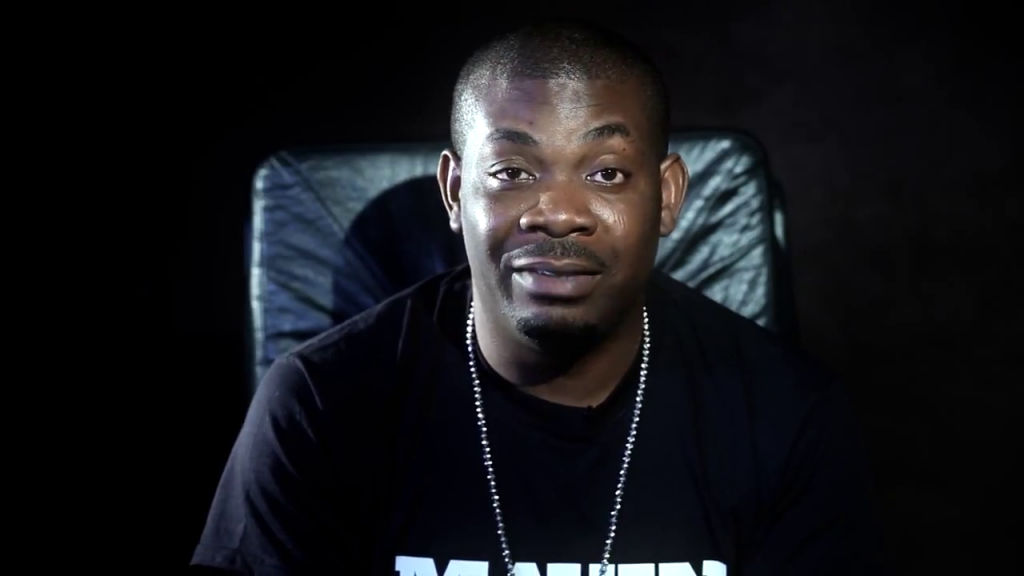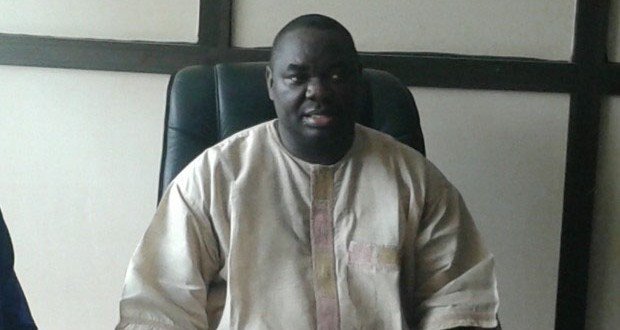TheCable: Why is Nigeria finding it difficult to overcome Boko Haram?
Davis: It is a combination of factors, some of which I will not share publicly. There is, clearly, a problem with intelligence gathering and sharing between the agencies so as to build a reliable and comprehensive picture that the military can act on. That is a fundamental problem. The militants usually move in a convoy of 20 to 60 vehicles. Although they often move at night they are now emboldened and are launching large scale attacks in the daylight. Americans claim they are doing aerial reconnaissance. Why are they not passing the information to the Nigerian military? With this information the Nigerian military could intercept the Boko Haram convoy before it reaches its target.
The geography of the northeast of Borno State sets the military at a significant disadvantage. The countryside in the north is generally flat with “black soil” that with the slightest rain becomes very boggy and prevents vehicular movement. The arterial roads are consequently built up to two meters higher than the surrounding countryside. Additionally they are very narrow making it very difficult for vehicles to pass one another and almost impossible for a larger vehicle to turn around without going off the formed road and over the embankment. The arterial road network is in a very poor state of repair and does not evidence any form of maintenance for many years. Governor Sheriff seems to have not expended any funds on maintenance of the rural road network.
Travel at a modest speed is only possible for very short distances. The majority of travel time is spent negotiating large holes where the road surface has fallen away. At night these large holes which force a convoy to almost a standstill are a prime location for ambush particularly where there is nearby cover for the insurgents to hide. In some instances where there is good cover to hide close to the road, the insurgents dig up the road surface to force the military to a standstill and the launch an attack. The narrow, elevated road means there is very limited ability for the convoy to turn around and escape. Every vehicle, commencing with the last vehicle in the convoy must turn around to enable the convoy to return and escape. This is a very difficult task while under fire. The terrorists ambush the soldiers.
Advertisement
The immediate implications of the poor arterial roads are that (1) military movements are often very slow (2) deployment to investigate reported incidents are often severely delayed (3) night movement has a very high risk of ambush with limited escape for the military convoy.
The military are unable to tackle Boko Haram at night because of these ambushes, and they are also misled during the day. If Boko Haram is striking in the west, the soldiers are misled by false reports into thinking the attack is taking place in the east. So they are in the wrong place. By the time Boko Haram is done, the soldiers are still trying to understand what is happening. We are talking about a state that has so many remote villages. Most of the victories recorded by the Nigerian military are not in the major camps of the militants.
TheCable: But since the kidnapped schoolgirls are in the big camps, Nigerian soldiers also have to act responsibly so as not to kill the girls…
Advertisement
Davis: Yes, that is true. But since these militants also move in a convoy of 60 vehicles when they want to strike at night, you have to ask why America is not sharing intelligence with the Nigerian military. At least, if the soldiers cannot invade the camps, they can take on the convoy of terrorists going out to launch attacks. The military’s opportunity is to interdict while the terrorists are en route to their target. When they are returning after the attack they are likely to have captives and a military attack would likely injure or kill many of the captives.
TheCable: But Nigeria also has its own intelligence agencies. Are they not able to trace these movements too?
Davis: I will not comment publicly on the work of Nigerian intelligence services. You will have to excuse me on that.
TheCable: Are you saying we cannot defeat Boko Haram?
Advertisement
Davis: Not with military might alone. Nigeria needs a peace deal. The suggestion of opening a dialogue with terrorists is generally repugnant to government. Dialogue is most often perceived as legitimising the terrorist group or rewarding terrorism. However, it is noted that very few terrorist groups have been defeated by military force. Argentina, Chile and Brazil eradicated terrorism by deploying State-driven terrorism that oppressed and terrorised citizens and killed thousands of innocent civilians. Brazil defeated the Action for National Liberation (ALN) using torture, death squads and mass arrests which destroyed democratic institutions, personal liberties and alienated the public. Sri Lanka’s military defeated the Tamil Tigers after 80,000-100,000 civilian casualties.
Military force has proven ineffective and often worked to the advantage of the terrorist group in many cases. In Russia the military had no success against the Chechen All-National Congress and other rebel groups. In Peru the military had no success over 30 years of fighting Shining Path. After 15 years fighting the Taliban the US opened a dialogue. The fighting between Israel and Hezbollah continues after 30 years of military action.
Boko Haram can be defeated but not by military force along. The first step must be to arrest Boko Haram sponsors, cut of arms supplies and isolate Boko Haram both geographically and communication-wise. That means a vigorous campaign to ensure the social media and news media do not host or distribute Boko Haram propaganda. This propaganda such as Abubakar Shekau’s rantings serve to give Boko Haram the notoriety with which they seek and to terrorise the nation.
TheCable: Are you saying our military is not competent or capable?
Advertisement
Davis: No I am not expressing a lack of confidence in the military. Go through the history of insurgency around the world. Don’t take my word for it. Check by yourself. You will discover that in a liberal democracy, you cannot rely on military power to end insurgency. Review history. If insurgency lasts for eight years, it becomes impossible to tackle and a review of cases around the world shows that the insurgency will then continue for another generation. You could still be battling it for the next 20 years. I am talking about the history of the last 50 to 70 years. Terrorism is very difficult to tackle. In some cases, insurgencies have been defeated by military force but these were done under military regimes with 70,000 to 100,000 civilian collateral deaths recorded. Military regimes can get away with that. But not under liberal democracies. Human rights groups, the United Nations, Western countries… they will all come after you. Nigeria is a growing democracy and the Nigerian people will not tolerate a return to military rule.
TheCable: What is the best way out?
Advertisement
Davis: A peace deal backed by a strong military. But the government must first bring the sponsors of insurgency to book. Government must arrest and interrogate the politicians funding the insurgency. Government must cut off the supply of funds to the militants. There is a ritualist group in Boko Haram that delights in slaughtering people. This group is being heavily supported by someone based in Cairo, Egypt with funds supplied by Nigerian politicians and power brokers. If funding is cut to this guy, there are many commanders in the Boko Haram camp who are ready to dialogue, release the captive girls and end the insurgency.
TheCable: You have been speaking to the media a lot recently. Why? What is your interest?
Advertisement
Davis: I have decided to speak out now because what I have seen in the last six months is terrifying. I am heart-broken by my experience during my four-month stay in Nigeria. The Chibok schoolgirls remaining in captivity are suffering terribly. Apart from the Chibok girls there are many more who have been kidnapped. Some who have escaped have given graphic accounts of their treatment. They are raped repeatedly and mercilessly, often by groups of terrorists. Political powerbrokers in Nigeria are funding these abhorrent acts. And what of the boys that are being kidnapped and forced to work for Boko Haram or become child-soldiers? The Nigerian government must act quickly and decisively to end the insurgency. The security agencies have to work co-operatively. Violence has escalated on an unprecedented scale. The bloodshed is unbelievable. The link between Boko Haram, Al-Shabbab of Somalia and the Islamic State in Iraq and the Levant is growing stronger. It is a triangle of terror of frightening potential. Nigeria, Iraq and Somalia…
TheCable: Please tell us more about the link. Boko Haram leader Abubakar Shekau recently said he had declared Islamic caliphate in some Borno villages…
Advertisement
Davis: They are very well organised. Today, they have active cells in all the northern states. They have grown from three small cells in 2006 to having commanders in sixteen northern states. They have five major camps on the Nigerian border with Cameroon, Chad and Niger plus another major camp in the Sambisa forest and one on the border between Yobe and Borno States. When they attack a town, they empty the treasury of the banks. That is another source of funding for them. They are gradually depopulating many villages in the state, taking them over and foisting their flag. They are very well organised and becoming very good strategists. By the time they are done with the villages, they will have a very good base from where they will launch attacks on Maiduguri, with the aim of taking it over and proclaiming the caliphate that they desire. Further delay is dangerous.
Add a comment
